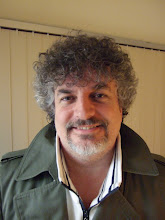I've been reading the book "The Millionaire Mind" by Thomas Stanley in the past few weeks. I enjoyed his first book "The Millionaire Next Door" so much I thought I'd see what he's up to now.
The premise of both books is incredibly simple. A professor studies millionaires to find out how they handle money and how they live their lives. Then he compiles that information and writes a book about it.
The results are surprising, especially to the "typical American." What's the typical American dream? New mansion, sports cars, motorbikes, fancy clothes. That's how you know you've made it in America, right??
Wrong, says Stanley. Dead wrong. The millionaires in America are not the people you think they are. The people with the flashy clothes and fancy cars are probably not millionaires. Statistically, it is very unlikely that they are millionaires. Instead, they are people living beyond their means. They are doctors, lawyers, real estate investors who are "income statement affluent" but they don't have any net worth, because they're out buying stupid stuff like clothes and cars.
Of course, we always like to read books that affirm our own ideas, and I'm no exception. I've always thought the way to get rich was to economize and to save like crazy. My wife is the same way.
But there was a concept in the new book "Millionaire Mind" that hit me like a brick to the forehead.
He compared two ways of thinking. Non-millionaires, he says, think of saving money in terms of "initial cost." This means they try to find the product that costs the least.
Millionaires think in terms "lifecycle cost." This is a bit different. He compares how people buy shoes. Buy the cheapest pair of shoes that fit, or buy a pair of shoes that will last a long time.
He even says that most millionaires (including himself!) buy dress shoes and then have them resoled once or twice in the lifetime of the shoe, rather than immediately buying a new pair.
Just a simple shift in the way people buy things like this would cancel out so much debt in our society. It would be great.
Everything I read (or listen to in the audiobooks) in Thomas Stanley's books reminds me of the radio show that has fast become a favorite of mine. The show is called "The Dave Ramsey Show" and it is on a variety of radio stations around the country. This guy sounds like a Rush Limbaugh type of character, but he stays out of politics (mostly) and focuses on helping his callers get out of debt. He gives rock solid advice to every single caller. Some of these people are hurting bad. He helps every single one of them, with compassion and excellent words of wisdom.
Check his Website to see if the show is on in your area. If not, you can actually download a Podcast of his show (the first hour each day, not all 3 hours) for no charge, again from the Website.
If we can get more of this great information out to all Americans we can put this country on the right track again financially. Dave Ramsey is doing his part. Thomas Stanley is doing his part. Pass it on!
Thursday, June 23, 2005
Subscribe to:
Post Comments (Atom)

No comments:
Post a Comment